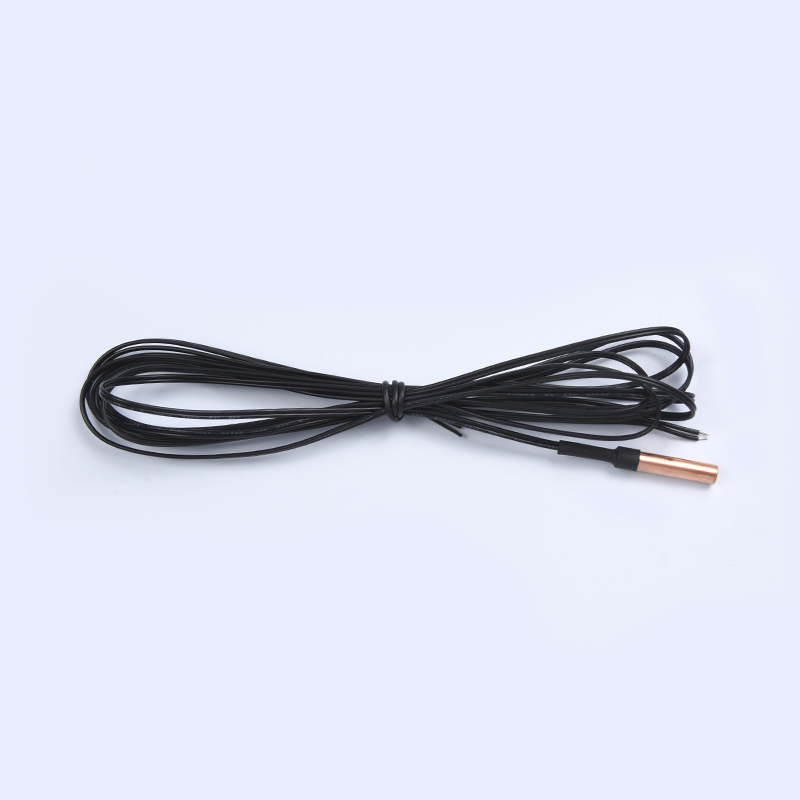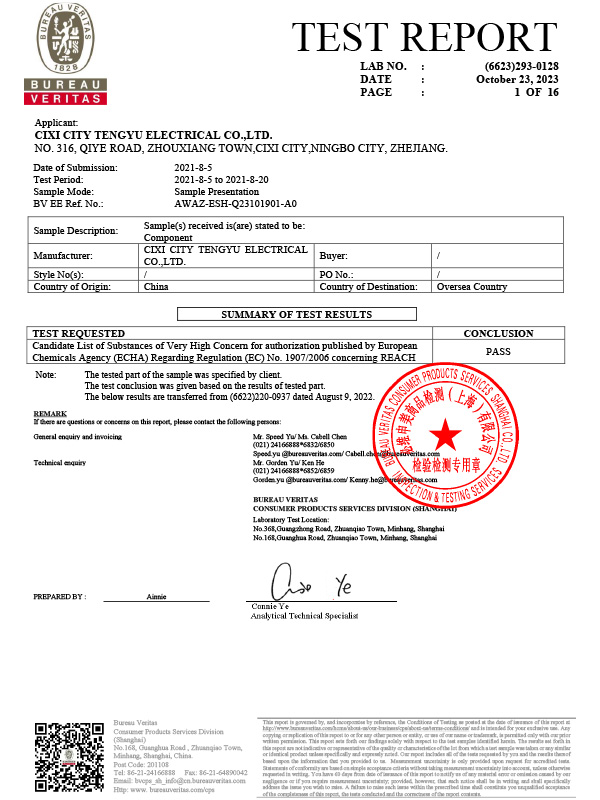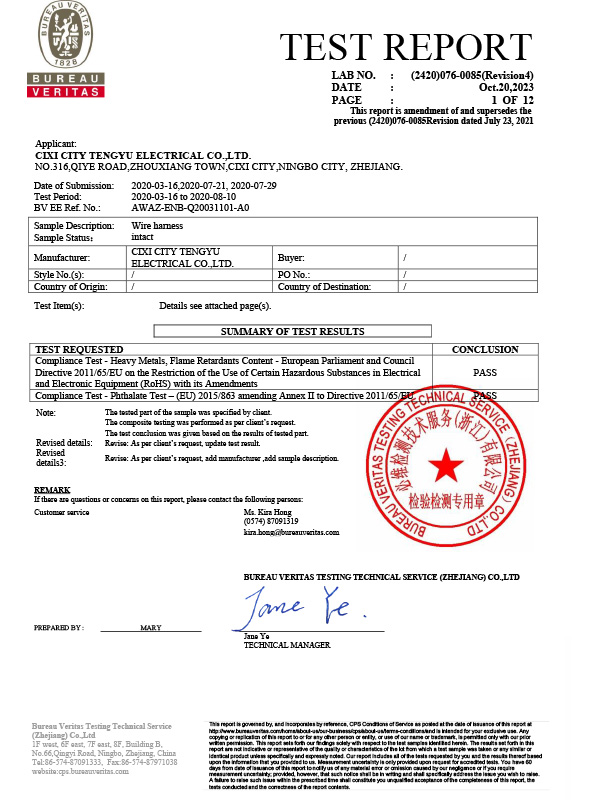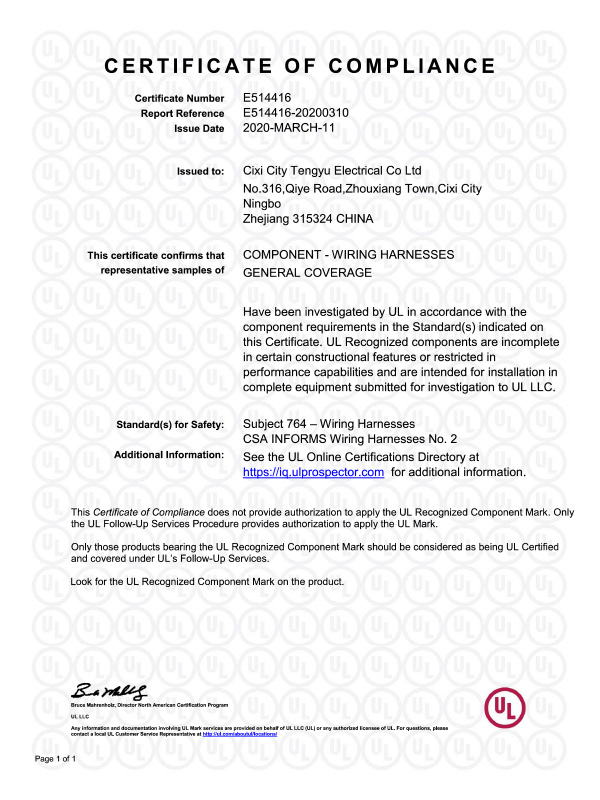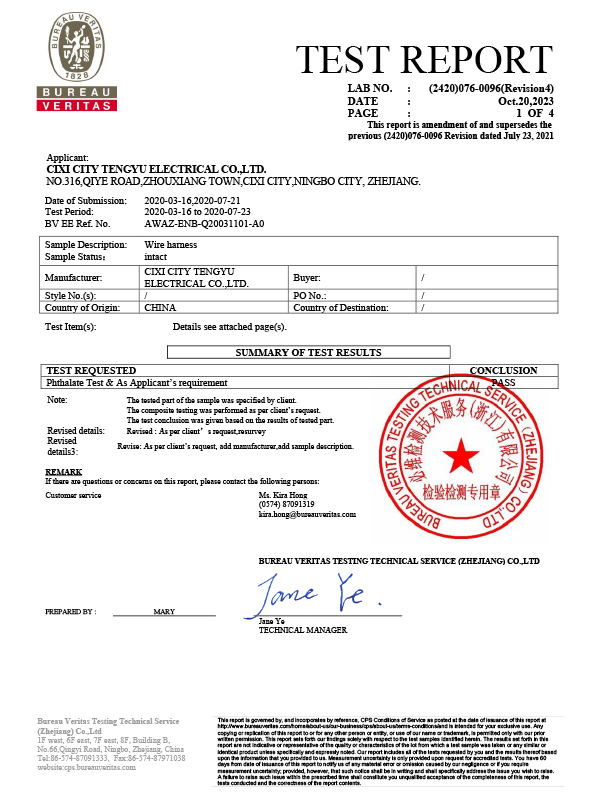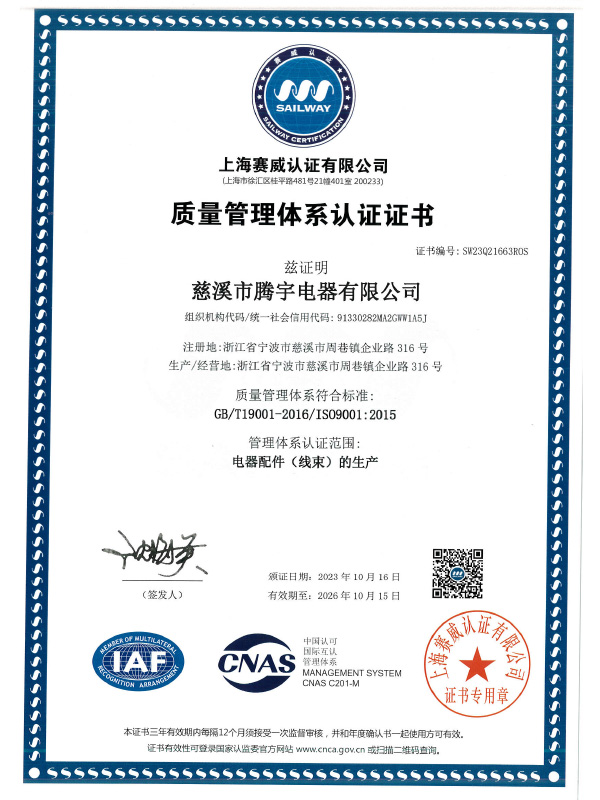How does a refrigerator's NTC temperature sensor affect refrigeration efficiency?
The Principle of NTC Temperature Sensors
An NTC temperature sensor works based on the principle that its electrical resistance decreases as the temperature increases. In a refrigerator, the NTC sensor continuously measures the temperature and sends a corresponding voltage signal to the control board. The control system interprets these signals to regulate the compressor and fan operation. Teng Yu Electrical Appliance leverages precise calibration and high-quality materials to ensure that NTC sensors maintain accurate resistance changes under various environmental conditions, supporting stable refrigeration efficiency.
Temperature Accuracy and Refrigeration Efficiency
The accuracy of the refrigerator NTC temperature sensor directly impacts refrigeration efficiency. If the sensor provides incorrect readings, the compressor may operate unnecessarily or insufficiently, leading to energy waste or uneven cooling. Teng Yu Electrical Appliance addresses this by selecting materials that resist degradation over time and by employing advanced testing protocols to confirm the sensor’s accuracy under repeated temperature cycles. This careful attention to sensor reliability helps refrigerators maintain consistent temperatures while reducing unnecessary energy consumption.
Response Time and Adaptive Cooling Control
In addition to accuracy, the response time of the NTC sensor influences refrigeration efficiency. Rapid detection of temperature changes allows the control system to adjust the cooling rate promptly, preventing overcooling or overheating of the compartments. Teng Yu Electrical Appliance incorporates sensors with optimized thermal contact and placement within the refrigerator compartments, which reduces response delays. This integration ensures that the cooling system operates efficiently, adjusting to variations such as frequent door openings or sudden changes in stored food volume.
Impact of Sensor Placement on Efficiency
The physical location of the NTC sensor within the refrigerator significantly affects its performance. Sensors placed near cold air outlets, away from direct exposure to warm incoming air, can provide a more representative temperature reading. Teng Yu Electrical Appliance carefully designs the placement of NTC sensors in different compartments, including fresh food and freezer sections, to enhance temperature monitoring accuracy. Proper placement reduces compressor workload, contributing to energy-efficient operation.
Material Quality and Long-Term Stability
Refrigerator NTC sensors must endure repeated exposure to low temperatures, moisture, and occasional frost accumulation. Material selection plays a crucial role in maintaining long-term stability. Teng Yu Electrical Appliance uses high-grade thermistors and protective coatings that prevent moisture ingress and resist physical stress. This approach minimizes the risk of sensor drift or failure, ensuring that the refrigerator maintains stable cooling performance throughout its service life.
Integration with Control Algorithms
Modern refrigerators rely on control algorithms that interpret the NTC sensor data to regulate compressor speed, fan operation, and defrost cycles. A reliable sensor allows the control system to implement precise temperature modulation strategies, which directly improves refrigeration efficiency. Teng Yu Electrical Appliance integrates sensor data with proprietary software algorithms that compensate for environmental variables and load changes, optimizing energy use without compromising food safety.
Environmental Factors Affecting Sensor Performance
Environmental factors such as humidity, air circulation, and frequent opening of the refrigerator door can influence NTC sensor readings. Inconsistent readings may cause unnecessary compressor cycles, reducing efficiency. Teng Yu Electrical Appliance addresses these challenges by designing sensors with fast thermal response and minimal sensitivity to ambient fluctuations, ensuring that refrigeration cycles remain stable and efficient under variable operating conditions.
Preventive Measures and Maintenance Considerations
Ensuring long-term sensor performance involves both preventive measures and maintenance awareness. Users are advised to avoid blocking airflow near the sensor or placing heat-producing items in direct proximity. Teng Yu Electrical Appliance provides guidance on proper refrigerator use and integrates quality checks during production to detect potential sensor defects, reducing the likelihood of performance degradation that could affect efficiency.
Industry Comparison and Performance Benchmark
Compared to other refrigeration technologies, NTC sensors offer a cost-effective solution for dynamic temperature control. The following table illustrates key parameters for a typical refrigerator NTC temperature sensor used in appliances by Teng Yu Electrical Appliance:
| Parameter |
Specification |
Relevance to Efficiency |
| Temperature Range |
-20°C to 80°C |
Covers both freezer and fresh food compartments |
| Resistance at 25°C |
10kΩ |
Ensures compatibility with control algorithms |
| Response Time |
≤ 5 seconds |
Rapid adaptation to temperature changes |
| Long-Term Stability |
±2% over 10,000 hours |
Maintains consistent sensor output |
| Moisture Resistance |
IP67 rated |
Prevents degradation due to condensation |
This table reflects the careful balance between sensor performance, durability, and operational efficiency, demonstrating how Teng Yu Electrical Appliance emphasizes both product quality and energy-efficient refrigeration.
How can I ensure the durability and stability of a refrigerator's NTC temperature sensor under long-term refrigeration conditions?
Material Selection for Long-Term Stability
The choice of materials in NTC sensor construction directly affects its durability. High-quality thermistor elements, along with protective coatings and encapsulation, can resist the thermal stress, humidity, and chemical exposure typical in refrigeration environments. Teng Yu Electrical Appliance applies rigorous testing to evaluate thermistor composition and protective materials, ensuring that sensors maintain consistent resistance characteristics under repeated low-temperature cycles and varying humidity levels. Proper material selection prevents premature sensor degradation and supports long-term operational stability.
Manufacturing Precision and Quality Control
Precise manufacturing processes contribute to NTC sensor stability. Accurate thermistor molding, consistent lead wire attachment, and uniform encapsulation reduce the risk of mechanical stress or thermal drift during operation. Teng Yu Electrical Appliance maintains strict control over production steps, including component inspection, resistance calibration, and environmental simulation tests, to ensure each sensor meets required specifications. This systematic approach minimizes performance variations and extends the operational lifespan of sensors under continuous refrigeration conditions.
Sensor Placement and Installation Considerations
The location and installation of NTC sensors within the refrigerator significantly affect both durability and stability. Sensors should be positioned away from direct exposure to warm air from the door and not in contact with moisture accumulation areas to prevent condensation-related damage. Teng Yu Electrical Appliance optimizes sensor placement in both freezer and fresh food compartments, considering airflow patterns and compartment design. Correct installation reduces mechanical stress and thermal cycling extremes, supporting the sensor’s long-term functional integrity.
Temperature Cycling and Thermal Stress Management
Frequent temperature fluctuations in refrigerators can impose thermal stress on NTC sensors, leading to changes in resistance over time. Sensors designed to withstand repeated cycles of cooling and defrosting maintain stable performance. Teng Yu Electrical Appliance conducts accelerated thermal cycling tests during development, verifying that sensors retain consistent response characteristics after prolonged exposure to low and variable temperatures. By addressing thermal stress in design and testing, the company ensures that sensors remain reliable throughout extended use.
Moisture Resistance and Condensation Control
Moisture intrusion is a common factor that can degrade NTC sensor performance. Condensation within the refrigerator, especially during defrost cycles, can affect the sensor’s electrical properties. Teng Yu Electrical Appliance utilizes protective coatings and hermetic encapsulation methods to safeguard sensors from moisture exposure. These measures help prevent corrosion or short-circuiting and maintain stable resistance readings, which are critical for consistent refrigeration efficiency.
Integration with Control Systems for Stability
Durability of NTC sensors is enhanced when combined with adaptive control systems. Even if minor resistance changes occur over time, intelligent control boards can compensate by adjusting compressor operation or fan speeds. Teng Yu Electrical Appliance integrates NTC sensor data with advanced control algorithms to maintain accurate temperature regulation, reducing the impact of gradual sensor drift and ensuring stable performance across long-term operation.
Handling and Transportation Impact
Improper handling during assembly or transportation can affect sensor stability, causing lead wire disconnection, microfractures in the thermistor, or damage to protective coatings. Teng Yu Electrical Appliance employs strict packaging protocols, anti-static measures, and shock-resistant materials during transportation to minimize physical damage. Careful handling at each stage of the supply chain contributes to the long-term durability of NTC sensors before they are even installed in refrigerators.
Maintenance Practices to Support Longevity
Although NTC sensors generally do not require frequent maintenance, certain preventive practices can support durability. Avoid placing heat-generating items near the sensor, ensure adequate airflow within compartments, and regularly clean surfaces to prevent frost buildup. Teng Yu Electrical Appliance provides usage guidelines and maintenance recommendations to ensure that end-users operate the refrigerator in ways that minimize stress on sensors, helping maintain long-term stability and consistent cooling performance.




 中文简体
中文简体